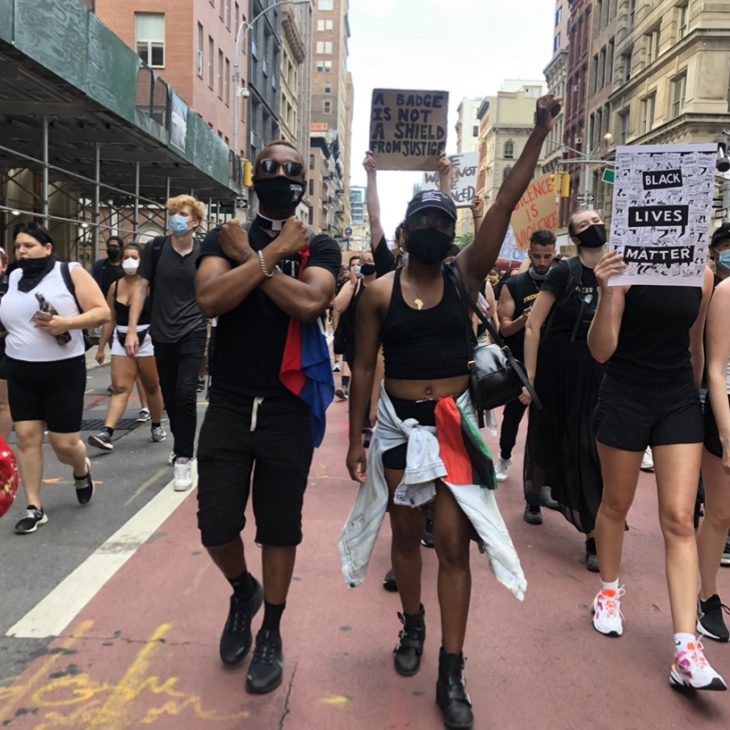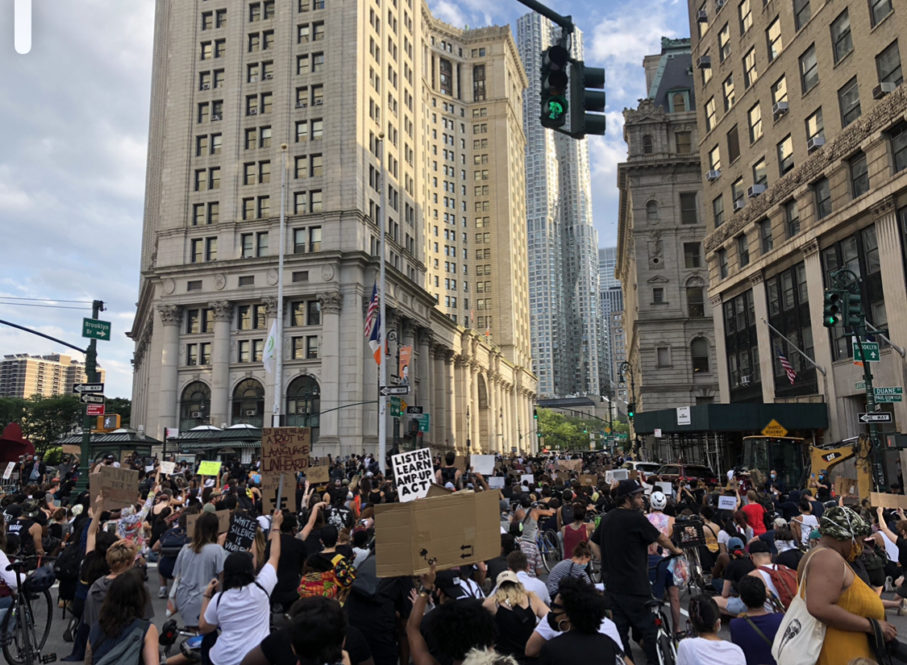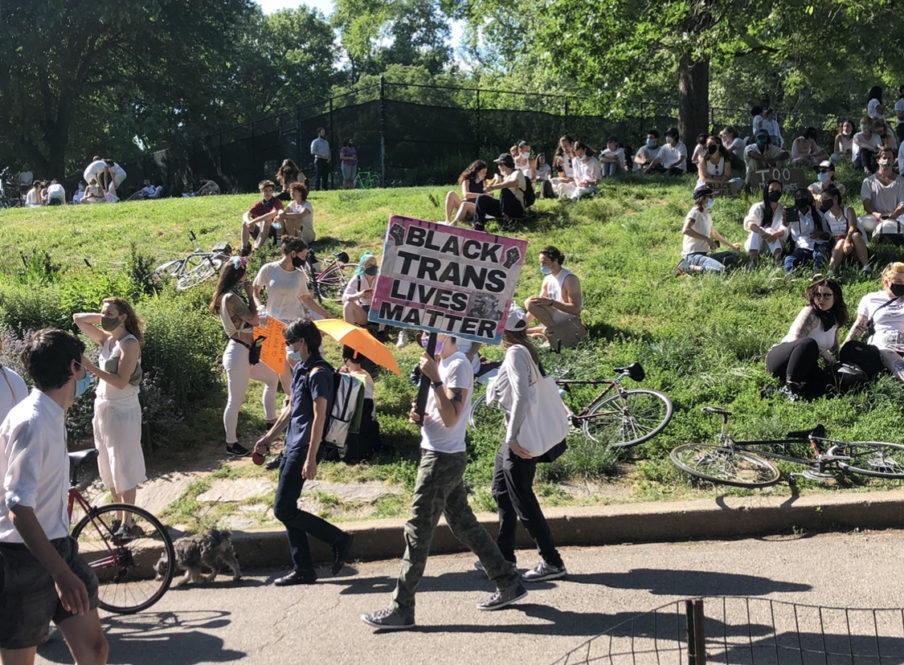Leading with Love
March 9, 2022

This article was originally published on July 27, 2020.
I felt a sense of light as I marched with over 15,000 people for Black Trans lives in Brooklyn on June 14. The love present during this moment was overpowering and the spirit of God was indeed present.
While the protestors were at a standstill in the middle of the street, a Black femme sitting on a ledge at a nearby park began to sing softly, “This is what community looks like…” The crowd of thousands of people was so engaged with the words being sung, we became extremely silent as we listened carefully, and repeated them back in a call and response fashion. I felt a sense of strength as my previous emotions of hopelessness began to fade. I was reminded to lead with love, and that acting is not a choice, but a moral obligation that saves lives.
Share
Related Articles
American Civic Life
American Civic Life
American Civic Life
We Commemorate, We Commit: Out of Catastrophe, a Conversation on Connection and Repair

Photo from the March by Kianna Ruff
As I consider love, I am reminded that this is the most important principle of my Christian faith. When we think of the sacrifice Jesus made, we must note that those who cultivated the imperialistic society during his time, made an active choice to hang him publicly. Black people during slavery were too hung and killed publicly. The death of George Floyd was not only a modern lynching—it was public.
My faith calls for me to identify Christ with the “recrucified” Black bodies of Breonna Taylor, Riah Milton, Dominique Fells, Atatiana Jefferson, and the countless names to precede and follow (Cone, 2011). My faith calls for me to understand that police brutality is one chip of the prison industrial complex iceberg. According to civil rights lawyer Michelle Alexander, mass incarceration is a system that locks people not only behind actual bars in actual prisons but also behind virtual bars and virtual walls—walls that are invisible to the naked eye but function nearly as effectively as Jim Crow laws once did at locking people of color into permanent second-class citizenship (The New Jim Crow, 2011). God’s greatest historical mechanism to demonstrate love was by dismantling a system that ostracized and killed orphans, widows, and foreigners—namely, the marginalized people of society.
My faith calls for me to take the positionality of leading with love. Leading with love means to be a warrior for Black lives—for all Black lives. It means to act. To act means to not be silent. To pray without ceasing and then to listen for the small still voice that provides methods of application. For Black people, acting is nuanced. For a Black mother, it could mean to resist the demand for her Black body to be strong for the rest of humanity and to tangibly take back the spaces that were stolen from her in order to care for herself and her child.

Photo from the march by Kianna Ruff
The BLM movement, co-founded by Patrisse Khan-Cullors, Alicia Garza, and Opal Tometi, has now sparked today’s current spirit of justice and serves as an extension from the fight for Black lives since the imperialistic cultivation of America. Therefore, as a Black Christian who seeks answers to lead with love by joining hands, protesting, and fighting for the liberation of my people, I too, can identify my own Black body with the crucifixion of Jesus. I can identify not only with the attempt of society to publicly strike against me as they did Jesus—I can also identify with the ancestral power that lives within me, guiding me to prevail against those who are waging a war to erase my Black body. As Jesus did.
Kianna Ruff is a Ferguson, MO native living in New York City. She received her Master of Divinity at Union Theological Seminary with a concentration in ethics. She currently works for the Center for Court Innovation (CCI), a nonprofit that focuses on criminal justice reform, where she is a community engagement coordinator who focuses on utilizing placemaking to cultivate neighborhood led safety and community resiliency. Kianna is also a former NCAA Division 1 track and field athlete at the University of Tennessee. Kianna’s main theological perspective rests in the concept presented by Black liberation theologian James Cone; we cannot experience the full truth of God if we cannot identify the cross with the lynching tree. Kianna’s leadership was recently covered in AP News – read more here.



